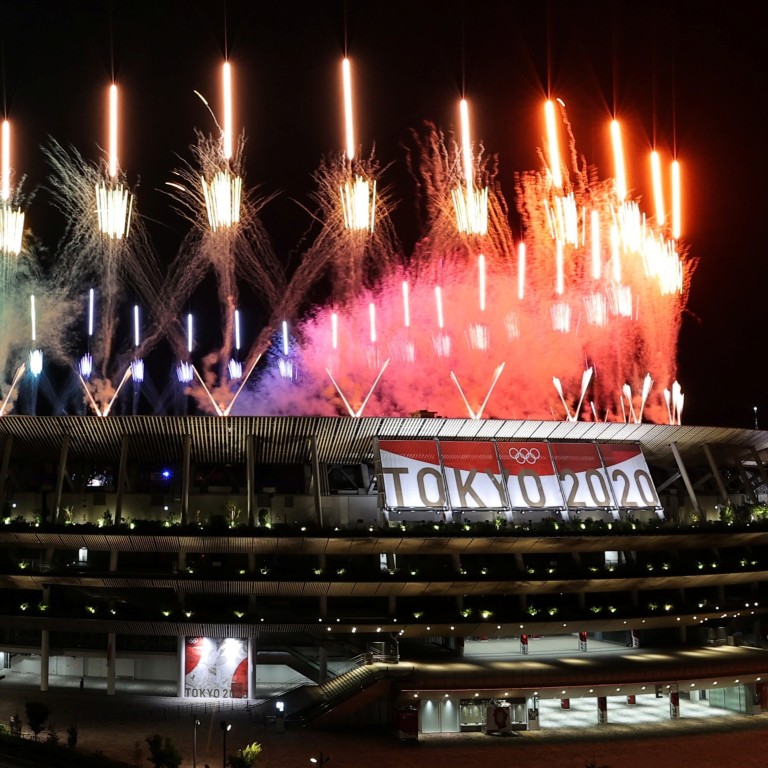
Tokyo Olympics: Hong Kong’s greatest Games ever brings joy unmatched to city and its athletes
- Cyclist Sarah Lee caps memorable two weeks with bronze in women’s sprint
- Disappointment despite her success speaks volumes for what was achieved
Putting the exclamation mark on the best performance in the city’s history, that Lee’s win was tinged with disappointment at what might have been spoke volumes for what was achieved – and desired even more – compared with the sober, modest predictions beforehand.
That the next Games in Paris are just three years away means there is already a weight of expectation building, and elite sport in Hong Kong has gained a prominence it long struggled to obtain.
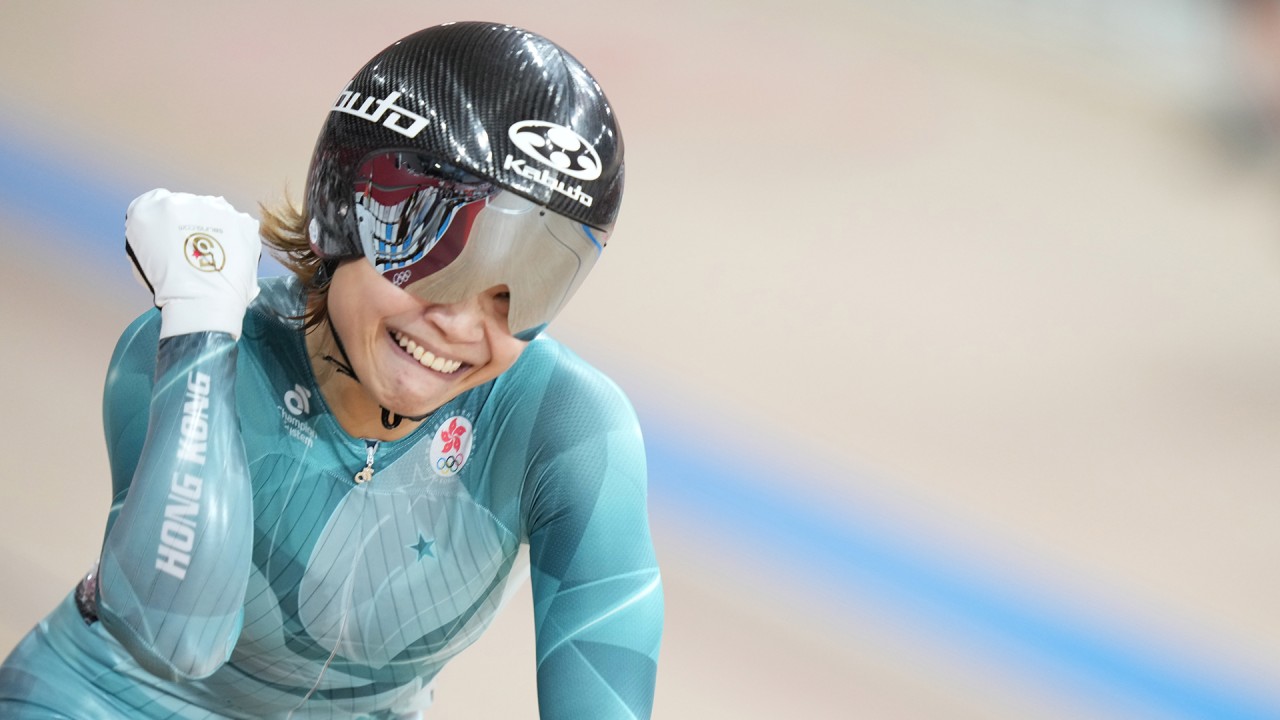
05:36
Hong Kong cyclist Sarah Lee claims bronze at Tokyo Olympics, as US tops China in medal tally
Success for China looks a little different than it might have done. The haul of 38 gold medals, won by the largest delegation it has ever sent to the Games, far surpasses the 26 from Rio and equals its best showing at an overseas Olympics. It is surely cause for pride.
Tokyo Olympics declared closed – day 16, as it happened
An official statement said the haul showcased “the leadership of the party and integrated strength of the nation”, but the fact China led the table from the very first day until the final hours before being passed by the United States, which finished with 39 golds, will still sting.
Attention now turns to the Winter Games in Beijing in six months, and there are bound to be lessons learned from Japan, which has walked a tightrope over the past 18 months.
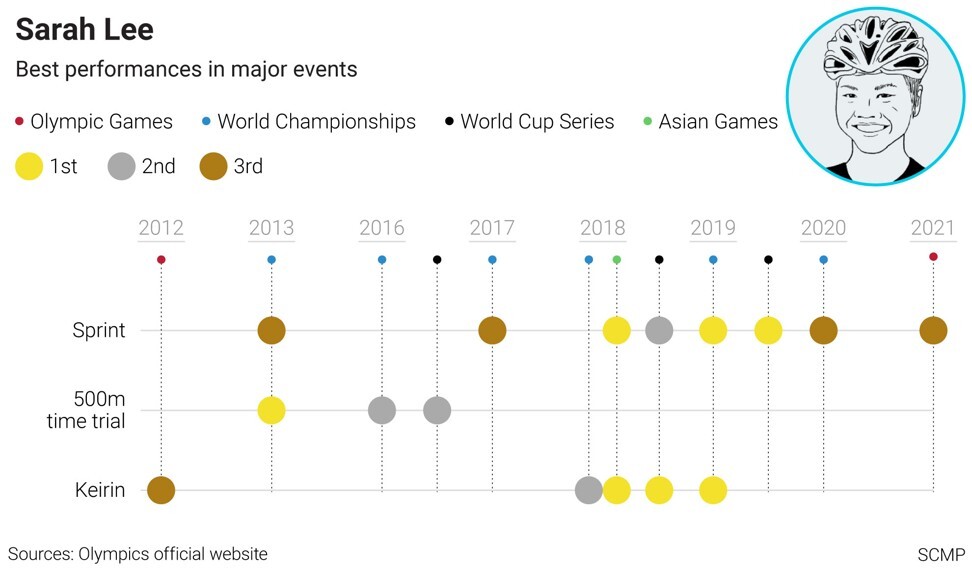
The 2020 Games, at an extremely conservative estimate of US$15.4 billion, are already the most expensive in history, and the daily Covid-19 update was generally met with bated breath by those there. Ultimately a few athletes only lost out because of positive tests, and organisers have already been praised for doing an incredible job.
Sunday’s closing ceremony, where Tokyo handed the torch to Paris, carried with it a certain sense of relief that the Games passed without incident, while the athletes there were given a taste of the culture they missed out on while confined to the Olympic Village.
How the USA stole the prized gold-medal race from China
Thomas Bach, president of the International Olympic Committee, had previously said he was worried the Games could be “without soul”, but the ceremony and the weeks proceeding it captured the best of the host nation and the one to follow.
“For the first time since the pandemic began, the entire world came together,” Bach said at the ceremony. “Sport returned to centre stage. Billions of people around the globe were united by emotion, sharing moments of joy and inspiration.”
Japan’s 27 gold medals, and 58 overall, are its best showing at an Olympics, and may be enough to buy its political leaders some goodwill, however briefly.
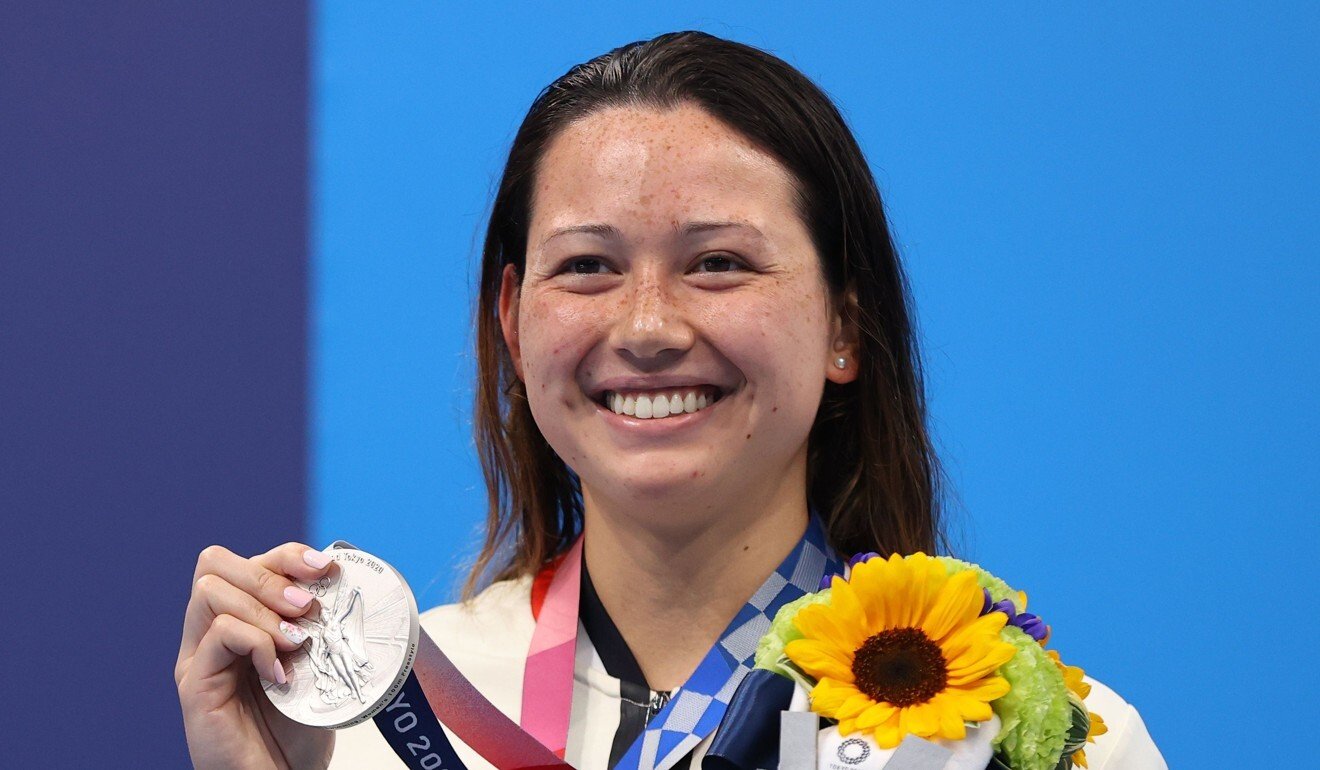
Sporting success can unite a place like nothing else because, according to Lee Siu-yau, an associate professor at Education University’s department of Asian and policy studies, it “fosters a sense of identity and pride”.
“Sport is a powerful unifying force in a politically divided society because it is often considered apolitical,” Lee said.
In many ways, Hong Kong’s 46 athletes reflected this year’s Olympic motto, “faster, higher, stronger, together”, which for a moment at least rubbed off on the city they represent.
Mild disappointment at Sarah Lee’s Olympic bronze speaks volumes
Lam is certainly hoping for an Olympic-sized bounce, and said on a television programme she hoped “the quality of perseverance displayed by [the athletes] can influence Hong Kong’s young people”.
On the piste, in the pool, on the track, and in the arena, the city’s Olympians have shown the next generation that success is not just measured in the classroom, and a senior sporting official said government support would be essential for fostering “sports development at the elite level and a sports culture at the community level”.
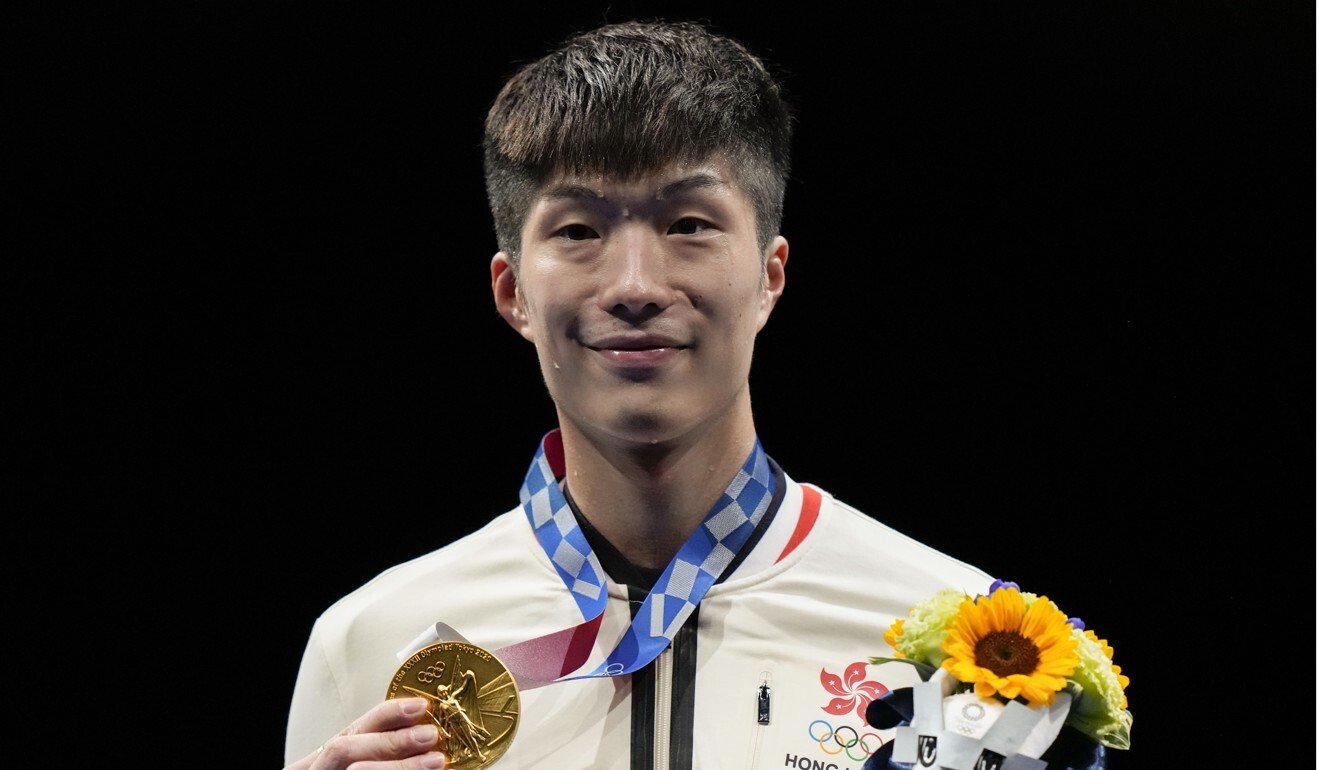
Lee has been the darling of Hong Kong sport for close to a decade, and the second bronze of her Olympic career was the icing on the cake of a terrific campaign, which began with an outstanding performance from fencer Cheung Ka-long, who won gold in the individual foil, and was followed by swim sensation Siobhan Haughey, who claimed double silver in the 100- and 200-metre freestyle, the women’s table tennis team and karate exponent Grace Lau Mo-sheung, who each took bronze.
Their heroics placed Hong Kong an implausible 49th in the final medal table, one spot behind India – with its seventh biggest economy in the world and second largest population – and ahead of the likes of South Africa, Austria and Portugal, countries with fiercely proud sporting heritages.
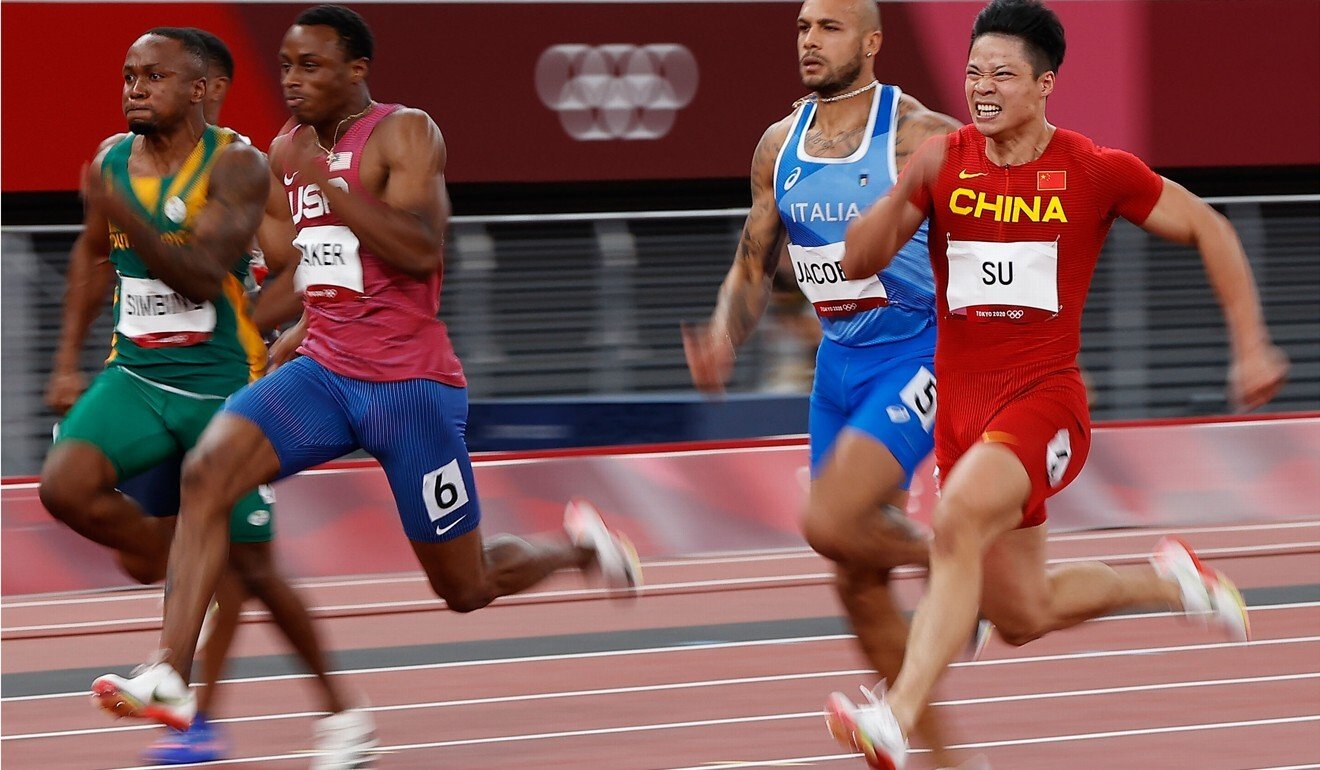
For China, a slew of new Olympic stars were born.
The gold-medal performances of 16-year-old gymnast Guan Chenchen, 14-year-old diver Quan Hongchan and the heart-warming story behind Olympic debutant Yang Qian’s journey to gold were a source of immense pride.
China was also able to bask in the glow of typically dominant performances from legendary paddler Ma Long and sprinter Su Bingtian, who more than proved Chinese track athletes belong in the elite company of the world’s best.
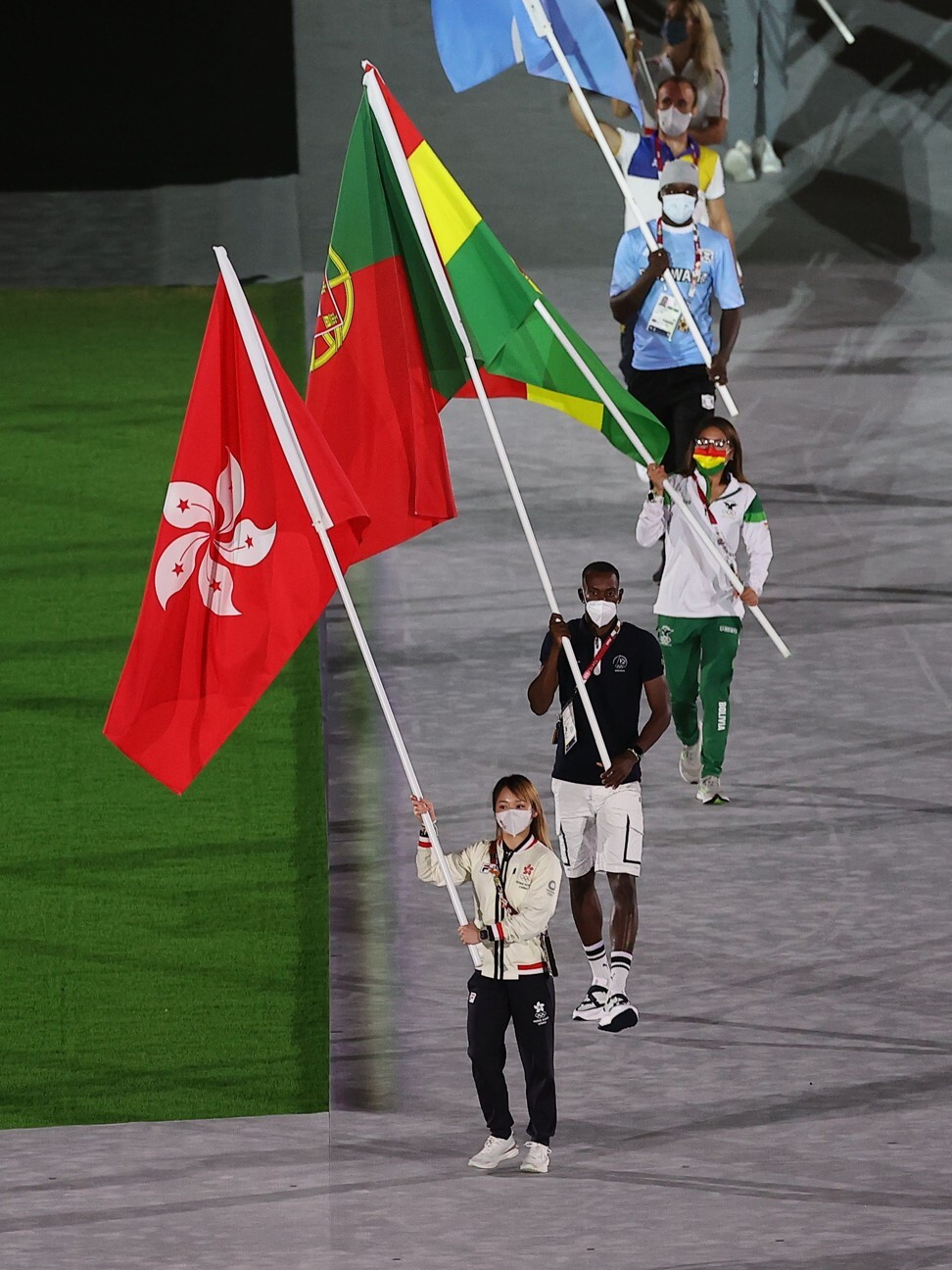
This was backed up by the achievement of its 4x100m men’s and women’s teams, and butterfly queen Zhang Yufei who, in equalling Sun Yang’s record for the most medals in the pool at a single Games, simultaneously cast off the looming shadow of the absent triple Olympic champion.
Ultimately the Games ended as they started, in front of a largely empty Olympic Stadium, but in between there were 339 medals handed out across 33 sports, the last going to the Russian Olympic Committee team in the women’s handball.
The US finished with 112 medals, taking home more than any other delegation for the seventh successive Olympics.
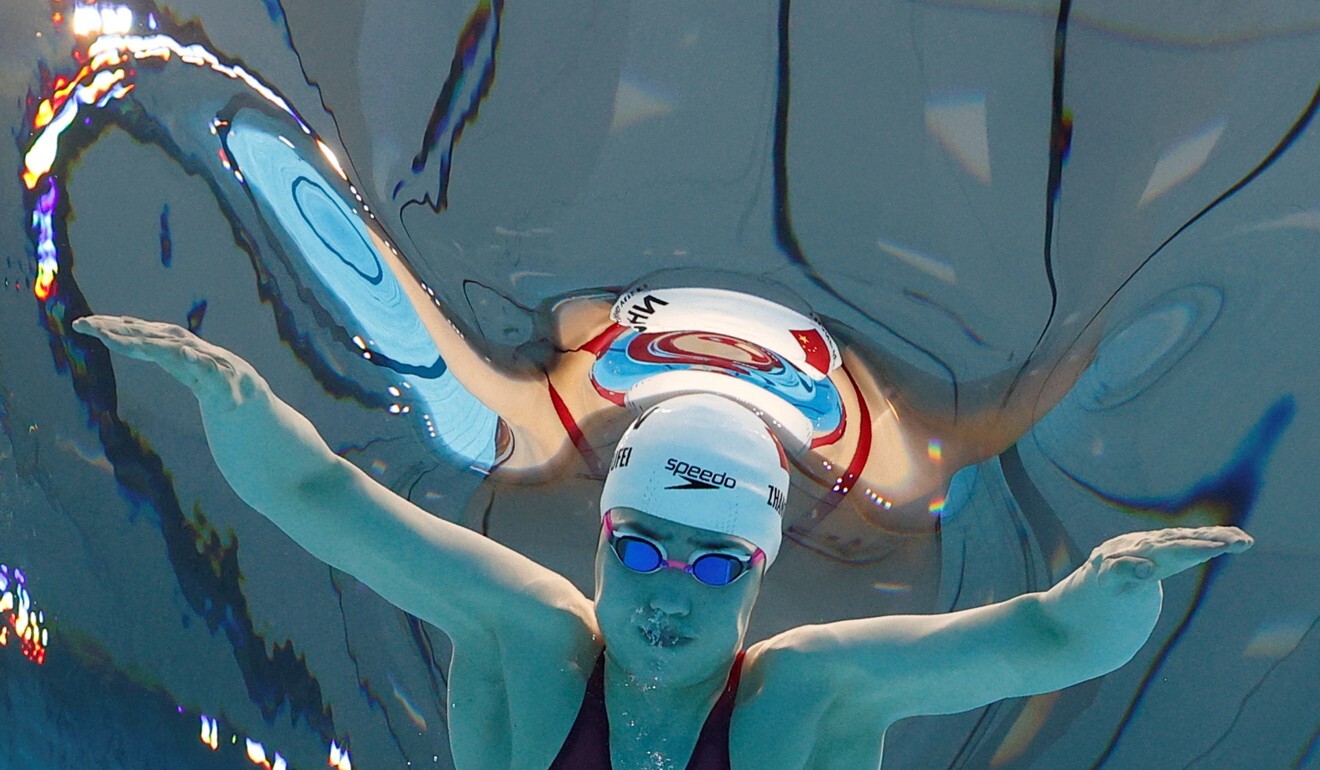
But these Olympics were not without controversy from the outset. Japanese broadcasters found themselves falling foul of China over the Taiwanese contingent at the opening ceremony.
The sport – once it started – went off without a hitch, neither a typhoon nor the stifling Tokyo heat proved more than minor distractions for the relentless schedule.
The Japanese public also appeared to have been won over, the medal haul and feel-good stories drowning out protests on the streets around the Olympic Stadium that rang through the arena during the opening ceremony.
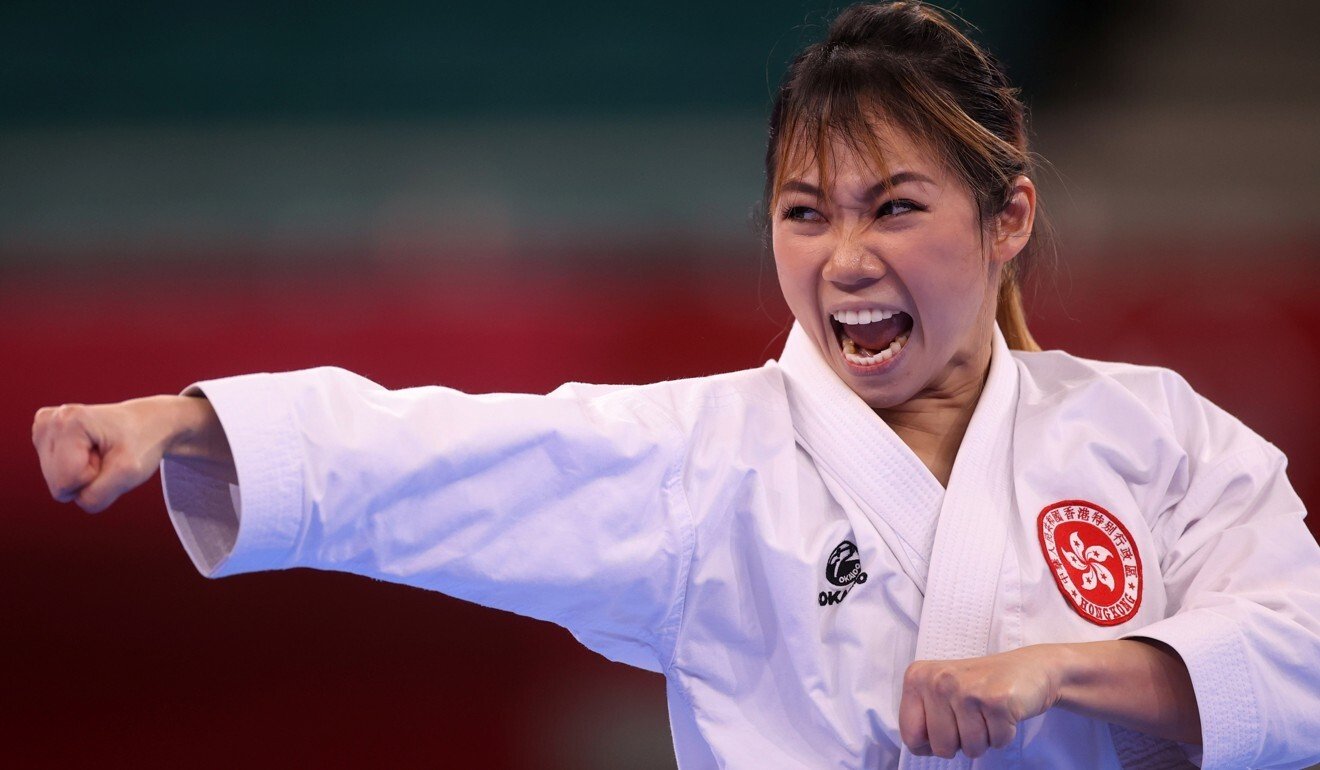
Japanese flags flew from flats overlooking the skateboard park, where the host nation’s youngest-ever Games medallist – 12-year-old Kokona Hiraki – took silver, while hundreds queued at a time for a photograph with the Olympic rings outside the Japan Olympic Museum in the shadows of the main stadium.
One superfan even waited there every day to exchange pins with visitors from around the world. His task was made all the more difficult because one of the Covid-19 prevention measures in the various playbooks organisers developed ahead of the Games prevented overseas visitors from interacting with locals for the first 14 days of their stay.
Tokyo Olympics athletes protest in creative ways to sidestep Rule 50
Along with a number of other protocols and apps developed for the event, the lack of coronavirus cases among the thousands of media visitors was a measure of success.
That could be what Beijing takes from this occasion.
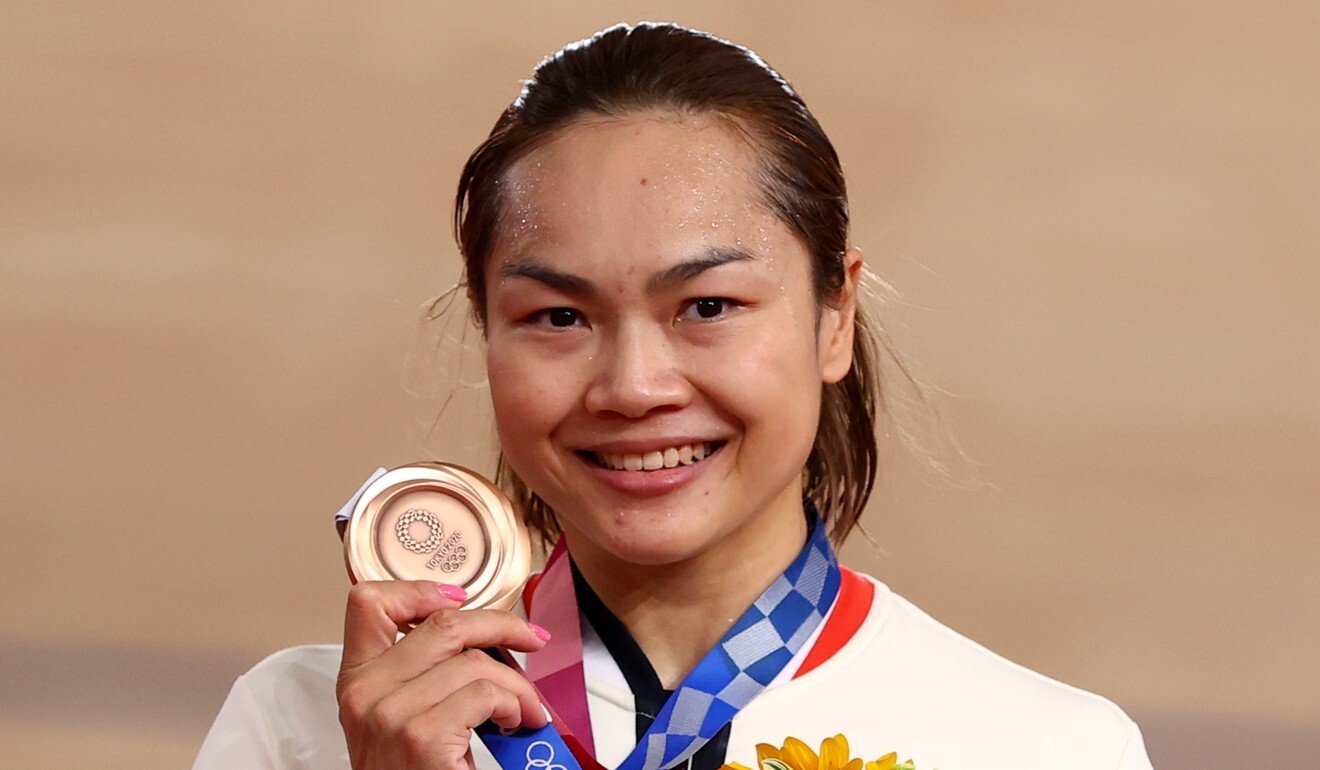
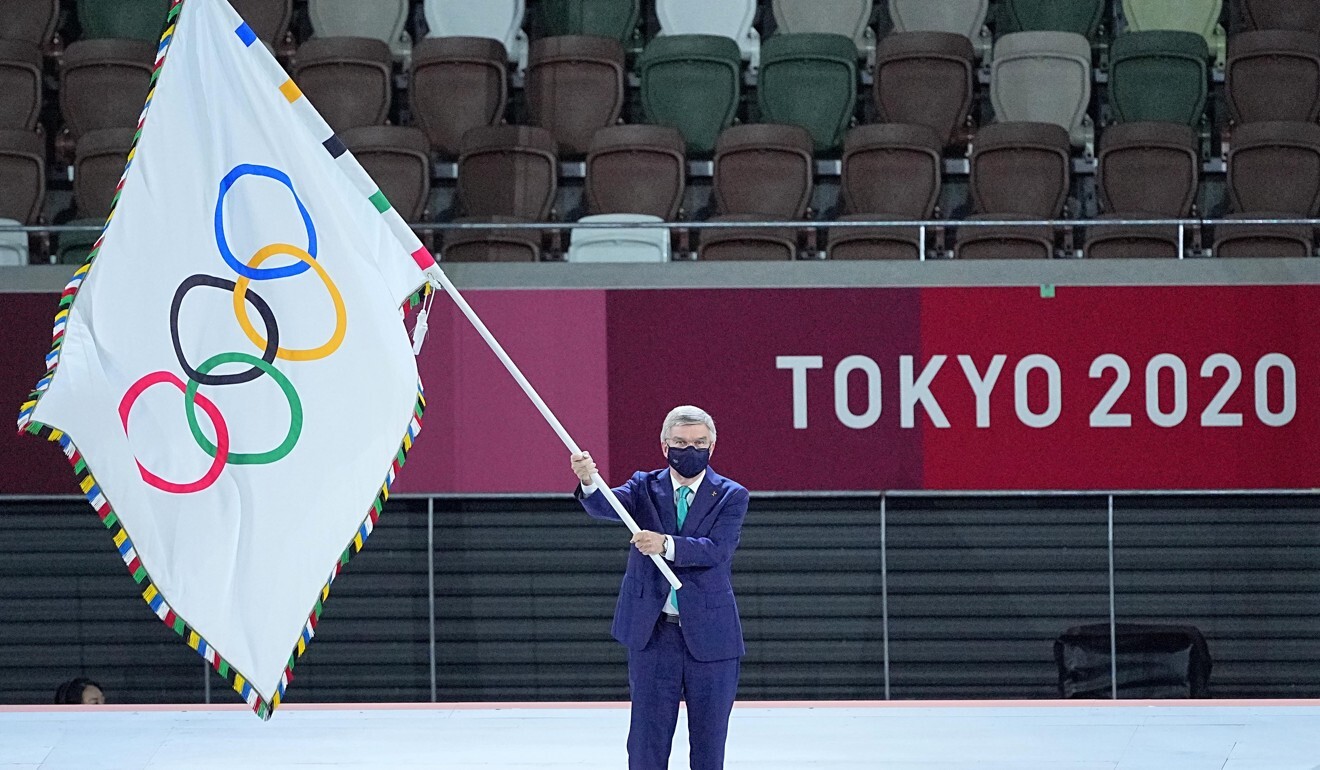
Surely, Beijing will not allow foreign spectators, if they allow any at all. Tokyo has shown that even in the absence of fans the show will go on.
How they will be remembered is a question for history to answer, but there were some notable achievements, not least the 66 medals the US won in women’s events, against only 41 in the men’s, highlighting some proof of changes in what was billed as the first gender equal Games.
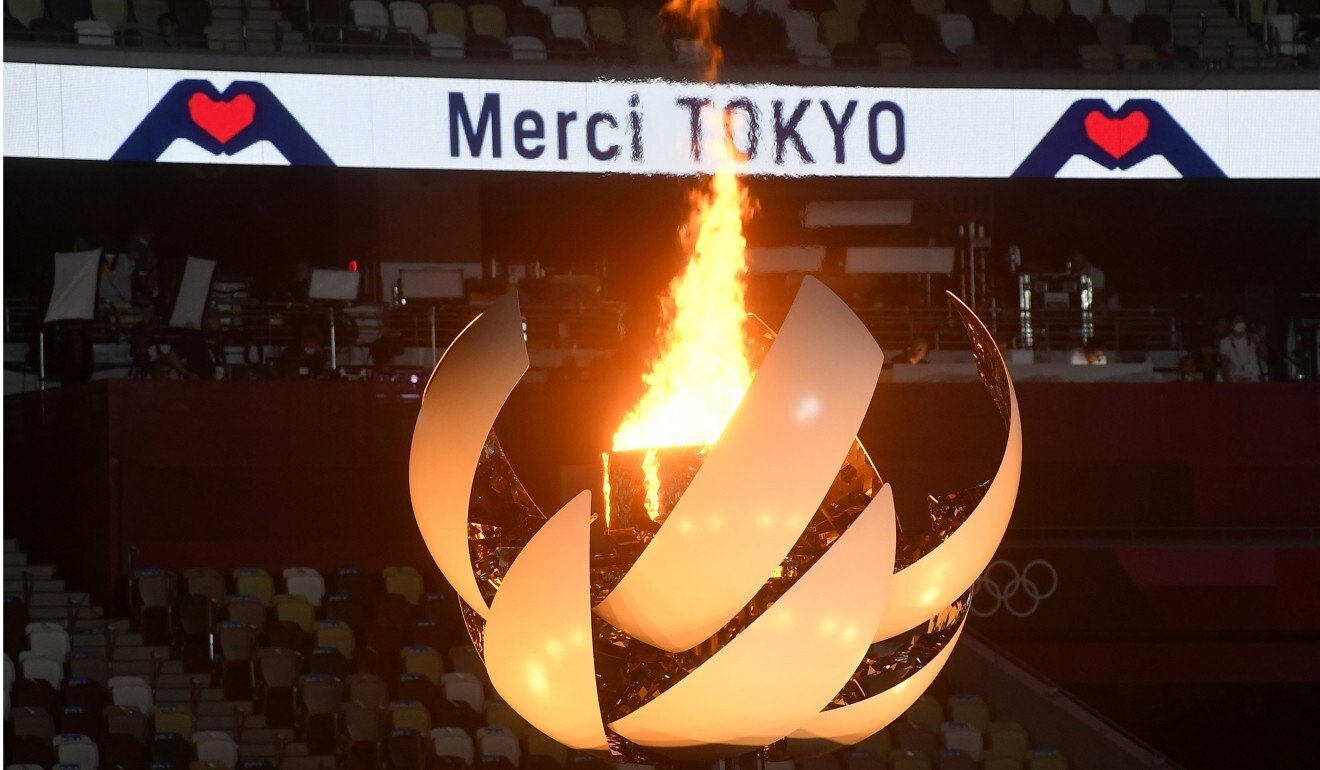
The other cost is human, with Tokyo racking up record numbers of Covid-19 cases by the day during its Olympics, and the effects of that will be felt in time, while the Japanese public will get a chance to have their say at the ballot box.
Hong Kong’s athletes have equally given their own city a lift, and lawmakers may well find that goodwill survives for a while.



